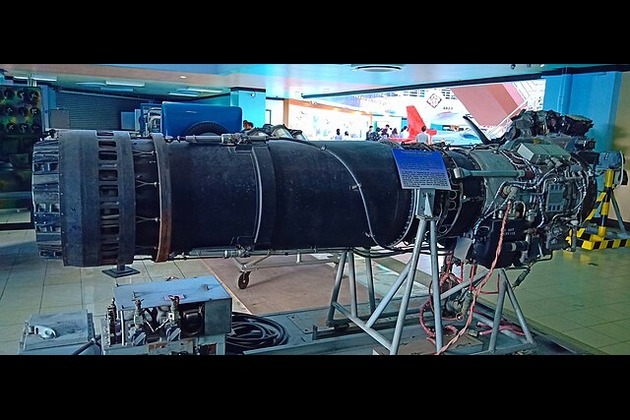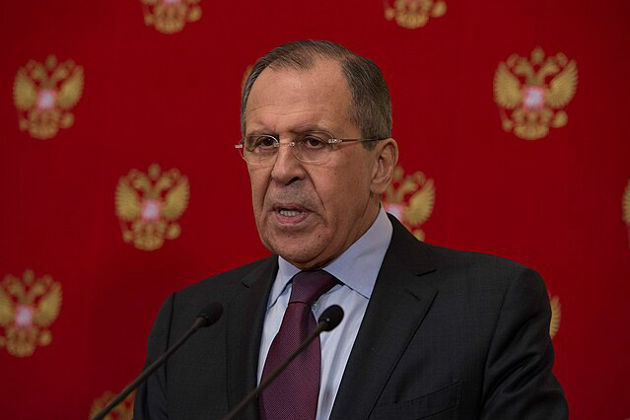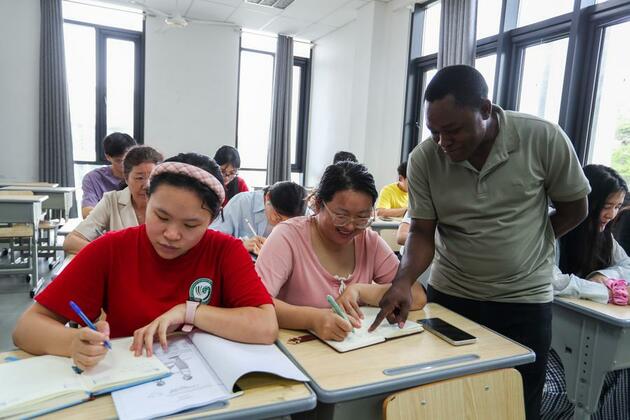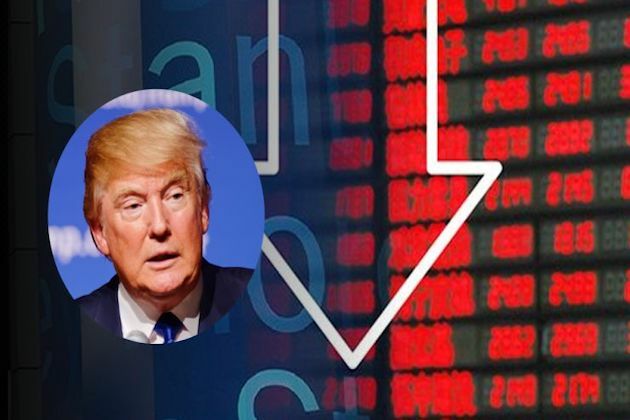Rising prices: why the global drive to keep food cheap is unsustainable
The Conversation
24 Jun 2022, 00:10 GMT+10

As prices rise, everywhere, for pretty much everything, the prospect of the human suffering this will cause is deeply worrying. There are predictions that the number of people in the world experiencing acute hunger - currently 276 million - could soon rise by as many as 47 million.
To address the problem, one thing that many agree on is keeping trade barriers low. This means not banning exports, where individual countries hang on to their supplies, and making sure sanctions don't affect vital food supplies. The fear is that any barriers to global flows of food will simply push prices up even more.
This focus on keeping prices low is understandable and necessary. But it is also worrying, because the economic mechanisms which have driven down prices in recent decades have severely weakened the global food system.
This was brought home to me on a recent visit to Kenya. Eating fish one evening on the banks of Lake Victoria, one of the world's largest inland fisheries, I asked my Kenyan colleagues where my tilapia would have come from. The surprising answer was that it was quite possibly from China.
But under the cheap food paradigm, this makes sense. China has done a phenomenal job of growing its aquaculture industry (it now commands around 60% of the global market) while also investing in African transport infrastructure.
Extremely efficient production and distribution have lowered costs, enabling local vendors in Kenya to earn a living selling imported tilapia at prices their customers can afford.
It's this kind of dynamic that the globalisation of food has allowed. But when globalised trade is disrupted, the whole system is threatened.
Until recently, for example, Ukraine supplied 36% of the world's sunflower oil. The Russian invasion has massively reduced trade from Ukraine, making this staple ingredient considerably more expensive for the millions of households and companies around the world that use it.
Many African countries depend on Ukraine and Russia for more than half of their wheat. Supply shortages created by the war, along with catastrophically high fertiliser prices, are threatening to increase hunger in the region.
This is the flip side of global efforts to keep food prices low. On the one hand, increased productivity and competitiveness have enabled food to be produced more cheaply and distributed to the people who need it. But the relentless drive to increase efficiency and gain competitive advantage has created risks for the resilience of the food system.
It has meant that a smaller number of countries and companies now dominate, detracting from the diversity in food sources and supply chains which is needed to build strength and reliability. As a UN report into food insecurity states, diversity matters because it "creates multiple pathways for absorbing shocks". Those shocks can be catastrophic.
It's little wonder then that many countries are re-evaluating their dependency on imported food to feed their people.
Protecting the planet
The single-minded focus on keeping food prices low also distracts from other issues, such as the environment and supporting sustainable livelihoods.
As the UN secretary general, Antonio Guterres, has pointed out:
It is unlikely that the fish I ate in Kisumu was produced in a way that took many of these concerns into account. But the cheapness of food incurs large costs elsewhere - for people's health, their livelihoods and for the whole planet.
These "hidden costs" have been estimated at almost US$20 trillion (Pound 16.3 trillion) per year. Put simply, the prices we pay for food today do not reflect the true cost of producing it - and such a system is unsustainable.
There is no question that food must be allowed to flow across borders in large enough quantities to prevent hunger. But there is also no doubt that future generations will need to be able to rely on a more sustainable global food system - one that incorporates prices, diets, environment, livelihoods and resilience.
It is incumbent on any battle against hunger to consider not just how to keep food cheap in the short term, but to ensure over the longer term that food systems are redesigned so they are stronger and more sustainable. This would involve substantial changes, but there are already signs of shifts in the workings of the global economy.
One prominent investor recently commented that the Russian invasion of Ukraine has "put an end to globalisation as we know we it," predicting a process of "deglobalisation" and companies re-calibrating their global supply chains.
This presents an opportunity to use the latest research to work out which economic models are needed to transform the planet's food systems. This should involve "true cost" accounting, which properly reflects the various costs and benefits of producing, transporting and selling what we eat.
There is also room for significant steps to be taken towards a food system which incorporates the circular economy (with more emphasis on sharing, reusing and recycling) and the "bioeconomy" model, with its focus on conserving biological resources.
Politicians, businesses and consumers need to accept that low food prices are part of a bigger problem. Focusing solely on keeping food as cheap as possible, and an unrelenting drive for productivity and profit, is not the way to keep the world well nourished.
Things need to change. And the fact that now is the hardest time to confront this problem is precisely why we should.
Author: Corinna Hawkes - Professor of Food Policy, City, University of London 
 Share
Share
 Tweet
Tweet
 Share
Share
 Flip
Flip
 Email
Email
Watch latest videos
Subscribe and Follow
Get a daily dose of Hong Kong Herald news through our daily email, its complimentary and keeps you fully up to date with world and business news as well.
News RELEASES
Publish news of your business, community or sports group, personnel appointments, major event and more by submitting a news release to Hong Kong Herald.
More InformationChina
SectionTikTok building U.S.-only app amid pressure to finalise sale
CULVER CITY, California: TikTok is preparing to roll out a separate version of its app for U.S. users, as efforts to secure a sale...
Beijing hits back at EU with medical device import curbs
HONG KONG: China has fired back at the European Union in an escalating trade dispute by imposing new restrictions on medical device...
Trump admin allows GE to restart engine sales to China’s COMAC
WASHINGTON, D.C.: The U.S. government has granted GE Aerospace permission to resume jet engine shipments to China's COMAC, a person...
Moscow removes Taliban from banned list, grants official status
MOSCOW, Russia: This week, Russia became the first country to officially recognize the Taliban as the government of Afghanistan since...
Shein hit with 40 million euro fine in France over deceptive discounts
PARIS, France: Fast-fashion giant Shein has been fined 40 million euros by France's antitrust authority over deceptive discount practices...
(Hello Africa) How Kiswahili is building a cultural bridge between China, Tanzania
Interest in Kiswahili among Chinese nationals is steadily rising. It represents a growing movement of cultural curiosity, mutual respect,...
Business
SectionBirkenstock steps up legal battle over fakes in India
NEW DELHI, India: Birkenstock is stepping up its efforts to protect its iconic sandals in India, as local legal representatives conducted...
Beijing hits back at EU with medical device import curbs
HONG KONG: China has fired back at the European Union in an escalating trade dispute by imposing new restrictions on medical device...
Wall Street reels after Trump invokes new tariffs
NEW YORK, New York - Monday's trading session saw mixed performances across U.S. and global markets, with several major indices posting...
Trump admin allows GE to restart engine sales to China’s COMAC
WASHINGTON, D.C.: The U.S. government has granted GE Aerospace permission to resume jet engine shipments to China's COMAC, a person...
Saudi Aramco plans asset sales to raise billions, say sources
DUBAI, U.A.E.: Saudi Aramco is exploring asset sales as part of a broader push to unlock capital, with gas-fired power plants among...
Russia among 4 systemic risk countries for Italian banks
MILAN, Italy: Italian regulators have flagged four non-EU countries—including Russia—as carrying systemic financial risk for domestic...











